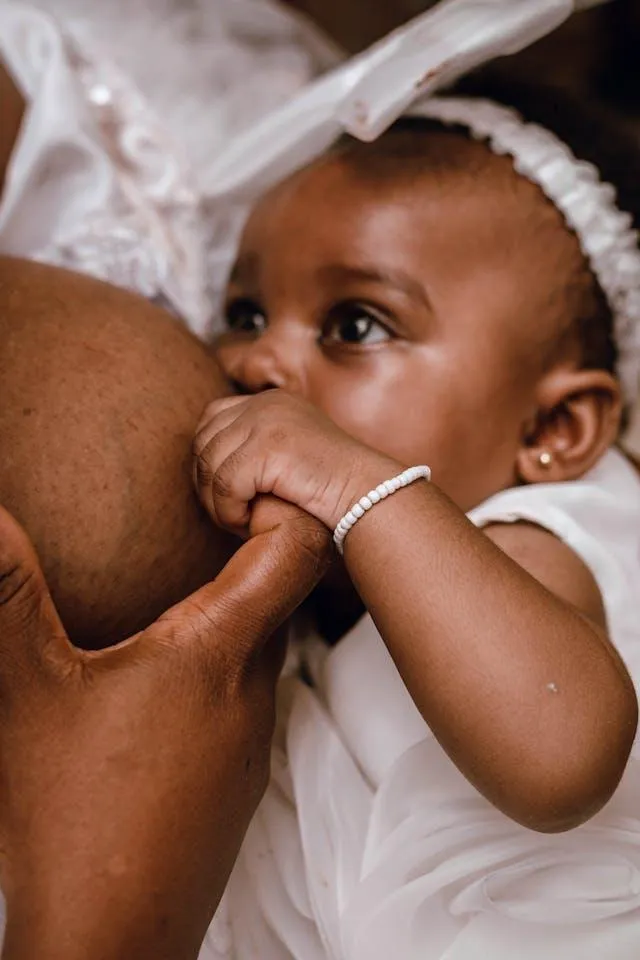South Africa's breastfeeding crisis: key reasons behind the decline and solutions for our babies

Breastfeeding isn’t just about nutrition. As the Department of Health explains, it protects babies against infections, reduces the risk of obesity and type 1 diabetes, and even shields mothers from certain cancers and chronic diseases.
Image: Serdi Nam /pexels
There’s something quietly powerful about breastfeeding. It’s nature’s golden elixir, a living substance scientists still can’t replicate.
Yet, as World Breastfeeding Week (WBW) reminds us each August, South Africa finds itself on the back foot, and babies could pay the highest price. While global exclusive breastfeeding rates have seen modest growth, South Africa’s numbers have moved in the wrong direction.
The country’s exclusive breastfeeding rate dropped from 32% in 2016 to just 22% in 2024, according to the Department of Health.
It’s a worrying trend, especially when you consider the World Health Assembly’s goal of at least 50% by 2025 and 70% by 2030. And unless real change happens beyond slogans and billboards, experts say we won’t get there.
Breastfeeding isn’t just about nutrition. As the Department of Health explains, it protects babies against infections, reduces the risk of obesity and type 1 diabetes, and even shields mothers from certain cancers and chronic diseases.
“Breastfeeding is not just about reaching country and global targets, but also about supporting infant health and development, as well as maternal well-being,” said Dr Lynn Moeng-Mahlangu, chief director of Health Promotion, at the department panel in 2023.
Yet despite these benefits, South African mothers are turning away from exclusive breastfeeding earlier than ever before.

breastfeeding is not an isolated decision. It is influenced by the social and structural fabrics surrounding new mothers.
Image: pexels
Why are mothers stopping breastfeeding?
According to Chantell Witten, health systems director at iLifa Labantwana, the reasons run deeper than “lack of information”.
Speaking to the "Daily Maverick", Witten said it’s about lack of support at every level: from workplaces that don’t give mothers time and space to express milk, to formula companies whose marketing quietly chips away at mothers’ confidence.
“Given the lack of maternity protection and stable employment opportunities, South African mothers are not protected to enjoy a successful breastfeeding journey,” Witten explained.
“The insidious marketing of formula through health professionals undermines government efforts to promote, support and protect breastfeeding.”
Formula marketing isn’t a new challenge, but digital platforms have supercharged it. And for families struggling financially, formula can feel like a convenient solution, even if it isn’t the healthiest one.
Lactation issues
- Insufficient milk supply: Mothers may perceive that they are not producing enough milk to satisfy their baby.
- Painful nipples: Sore or cracked nipples can make breastfeeding uncomfortable and lead to early cessation.
- Infant refusal to breastfeed: Some infants may go through periods of refusing to breastfeed, known as "nursing strikes".
- Concerns about infant satisfaction: Mothers may worry that their baby is not getting enough milk or not being satisfied by breast milk alone.
- Need to take medication: Some medications are not compatible with breastfeeding, requiring mothers to stop or supplement with formula.
- Maternal illness: Mothers may need to stop breastfeeding due to their own health issues or postpartum depression.
Social and support factors
Unsupportive work policies: Lack of access to private lactation rooms or flexible work schedules can make it difficult to continue breastfeeding at work.
Breastfeeding is a shared responsibility
The Department of Health, supported by WHO, UNICEF, and organisations like the South African Breastmilk Reserve (SABR), emphasises that exclusive breastfeeding shouldn’t rest only on mothers’ shoulders.
Fathers, grandparents, employers, communities, and even policymakers all play critical roles. Creating truly supportive environments means maternity leave that actually lasts, safe places to breastfeed in public, and workplaces that see breastfeeding not as a disruption, but as an investment in the next generation’s health.
The theme of World Breastfeeding Week 2025, “Prioritise Breastfeeding: Create Sustainable Support Systems”, isn’t just a slogan. It’s a call to build systems that protect mothers from pressure, shame, and misinformation.
Malnutrition
As breastfeeding rates fall, South Africa faces an alarming surge in childhood malnutrition. The Department of Health notes rising rates of stunting, wasting, and overweight in children under five. The irony? Breastfeeding could help prevent these outcomes.
Globally, UNICEF reports that breastfed children have at least a sixfold greater chance of survival in the first months of life compared to non-breastfed infants. Yet, here at home, we still risk missing out on these life-saving benefits.
Education campaigns alone aren’t enough.
Dr Moeng-Mahlangu has called for new strategies to encourage mothers to breastfeed exclusively for six months, and to continue up to at least 12 months.

Breastfeeding saves lives, builds healthier children, and safeguards mothers. As we observe World Breastfeeding Week, it is vital that we engage with what should be seen as a public health crisis that matters to us all.
Image: Anna Shvets /pexels
This could mean everything from paid maternity leave to community-based peer support groups and better training for health workers to tackle formula marketing head-on.
“We need to move beyond awareness to real, structural change,” she emphasised.
Breastfeeding isn’t an individual choice made in a vacuum. It happens or doesn’t because of the world we build around new mothers. South Africa’s breastfeeding numbers aren’t just statistics.
They’re a mirror reflecting how well or how poorly we support the earliest, most fragile months of life. Breastfeeding saves lives, builds healthier children, and protects mothers.
And maybe, as World Breastfeeding Week reminds us, that’s the real crisis we should all care about